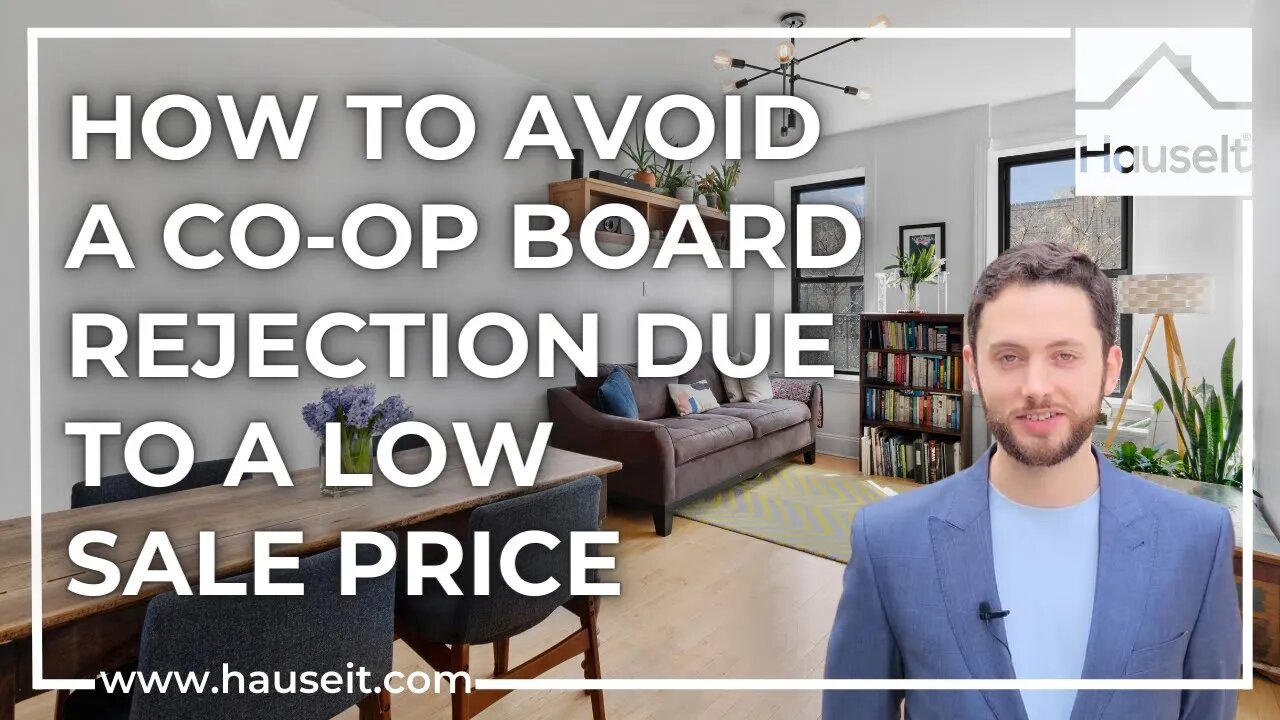Premium Only Content

How To Avoid a Co-op Board Rejection Due to a Low Sale Price
Co-ops in New York City have broad discretion to approve or reject prospective purchasers. Oftentimes a co-op may actually reject a purchaser not for any reason pertaining to the applicant's financials but rather because the contract price itself is deemed to be unacceptably low by the co-op board. So, in this video we're going to talk about a common method for reducing the risk of this happening in your potential transaction.
Save 2% When Buying in NYC with Hauseit: https://www.hauseit.com/buyer-closing-credit/
Save 6% When Selling in NYC with Hauseit: https://www.hauseit.com/agent-assisted-fsbo/
Save money when buying, selling and renting real estate in New York and Florida with Hauseit (https://www.hauseit.com). Available in NYC, Long Island, the Hudson Valley and South Florida. Visit https://hauseit.com, send us an email to team@hauseit.com or give us a call: (888) 494-8258 to learn more. Established 2014.
1% Full Service Listing: https://www.hauseit.com/1-percent-full-service/
Hauseit Rental Listing Service: https://www.hauseit.com/rental-listing-service/
So, how does one reduce the risk of being rejected by the board due to a low contract price? Well, the long and short of it is that the contract itself can be adjusted or papered to show an artificial price. For example, if the price agreed between buyer and seller is say $2.6 million and you're pretty confident that the co-op won't be happy with that number. You can simply instruct the attorneys to draft the contract with a much higher price for example. Something like $3.5 million.
So, just to reiterate the economics of the deal are still $2.6 million in terms of the price but the paper itself the contract which is going to be submitted to the co-op board as part of the board application will have an inflated number. Now, of course in addition to the contract itself, the attorneys on the deal will of course paper something on the side which makes it very clear that at closing, the seller will return the excess proceeds to the purchaser.
Now, one ramification for this method is that it does increase the total closing costs on the transaction. Both buyer and seller closing costs are impacted by artificially increasing the contract price. It can affect the closing costs vis-a-vis the mansion tax that the buyer typically pays. It can affect the seller's closing costs through the city and state transfer tax obligations and it can also affect either the buyer or the seller through the flip tax. So, on the screen we've actually put together an example showing the difference in closing costs associated with artificially increasing the contract price. As you can see, there is a meaningful increase in the closing cost bill as a result of changing the contract price to appease the board.
Now, who's responsible for these incremental closing costs? Really depends on the particulars of the situation at hand who has the leverage. Is it the buyer who has the leverage or is it the seller and depending on the answer that will dictate the flow of the conversation and ultimately who agrees to pay the incremental closing costs associated with changing the contract price.
.
.
https://www.hauseit.com
Save money when buying, selling and renting real estate in New York and Florida with Hauseit (https://hauseit.com). Available in NYC, Long Island, the Hudson Valley and South Florida. Est 2014.
Hauseit Group LLC, Licensed Real Estate Corporation
Tel: (888) 494-8258 | https://www.hauseit.com
_
#hauseit #hauseitnyc #hauseitmiami #hauseitsouthflorida #hauseitlongisland #hauseithudsonvalley #hauseitwestchester #hauseitrealestate #hauseitre
-
 LIVE
LIVE
Barry Cunningham
3 hours agoPRESIDENT TRUMP MADE TODAY A VERY BAD DAY TO BE A DEMOCRAT!
8,184 watching -
 LIVE
LIVE
Flyover Conservatives
21 hours agoFrom Cool to Cringe: How Democrats Lost America’s Ear | FOC Show
281 watching -
 8:19
8:19
MattMorseTV
7 hours ago $0.90 earnedTrump is ACTUALLY DOING IT.
3.82K20 -
 LIVE
LIVE
ZWOGs
9 hours ago🔴LIVE IN 1440p! - Tarkov w/ Casey & crgoodw1n, Kingdom Come Deliverance, & More - Come Hang Out!
74 watching -
 LIVE
LIVE
We Like Shooting
13 hours agoWe Like Shooting 625 (Gun Podcast)
151 watching -
 1:45:02
1:45:02
Glenn Greenwald
4 hours agoIsrael Slaughters More Journalists, Hiding War Crimes; Trump's Unconstitutional Flag Burning Ban; Glenn Takes Your Questions | SYSTEM UPDATE #504
87.9K89 -
 1:29:31
1:29:31
Killerperk
1 hour agoRoad to BF6. Come hang out #regiment #bf6
1.35K1 -
 LIVE
LIVE
Jokeuhl Gaming and Chat
2 hours agoDARKTIDE - Warhammer 40k w/ Nubes Bloobs and AoA
46 watching -
 LIVE
LIVE
Cripiechuccles
3 hours ago😁💚💙MOTA MONDAY WITH CRIPIE💚💙 👌SMOKING, GAMING & WATCHING FLICKS!:😁
38 watching -
 36:11
36:11
Stephen Gardner
2 hours ago🔥'Burn ALL TRUMP FLAGS’ says Tim Walz + Democrat CAUGHT rigging own election!
9.58K8